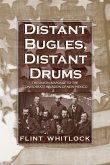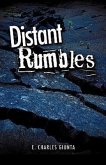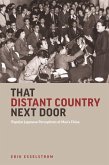"a provocative and stimulating addition to the study of World War II." HistoryNet Perfect for readers of Max Hastings, James Holland and Stephen E. Ambrose. By September 1944 the Germany army in France had been decimated and survivors were streaming back to the Reich. The British SAS commanders were clearing the way for the American armies of George S. Patton, Alexander Patch and Courtney Hodges. By the afternoon of September 11, 1944, men of the U.S. 5th Armored Division penetrated the poorly defended Siegfried Line. Yet just when the Rhine was ripe for the taking General Dwight D. Eisenhower ordered all further advances to be halted. Could combination of American forces supported by the British SAS have crossed the Rhine and thrust into the heart of Germany in the autumn of 1944? Did Eisenhower's rigid adherence to his broad-front strategy delay the end of the war by several months and cause thousands of men to lose their lives in the bloody struggles in the Ardennes and the Hurtgen Forest during the Battle of the Bulge? Charles Whiting's brilliant book Death on a Distant Frontier is a hard-hitting reappraisal of Eisenhower's tactics. Through extensive research Whiting shines a light on the conflicts of personalities between the various generals and explores how Eisenhower conducted the war to ensure that his insiders reaped the glory of being the first American army to cross the Rhine. As a veteran of this campaign, Whiting was a witness to the turmoil that reigned during this fourth month period, yet through his fast-paced narrative and informed analysis he is able to provide vivid insight into this much-overlooked period of the Second World War when the Allies could have broken through into Nazi Germany.
Hinweis: Dieser Artikel kann nur an eine deutsche Lieferadresse ausgeliefert werden.
Hinweis: Dieser Artikel kann nur an eine deutsche Lieferadresse ausgeliefert werden.





![To the President of the United States [microform]: We, the Citizens of Richmond, Manchester and Their Vicinities, and Many Other Persons From Distant To the President of the United States [microform]: We, the Citizens of Richmond, Manchester and Their Vicinities, and Many Other Persons From Distant](https://bilder.buecher.de/produkte/66/66147/66147650m.jpg)


